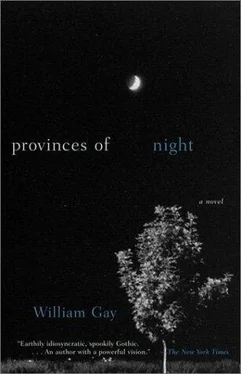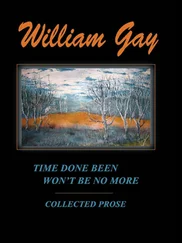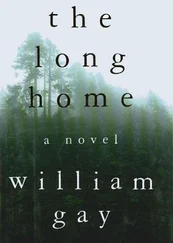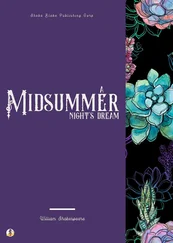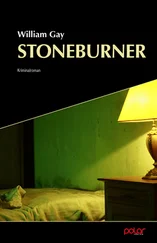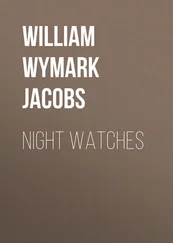Albright stopped scraping for a long moment and looked at him. I guess that explains why it don’t say Taxi on the sides no more, he said.

SHE SET the tone arm carefully onto the spinning record, waited. It was as the old man had told, the record was unused, there was scarcely a hiss as the needle tracked the grooves. The banjo commenced so abruptly it must have been going full tilt when the recorder was switched on thirtyodd years before. The old man’s voice, smoky and sardonic, almost mocking, but you couldn’t tell if he was mocking you or mocking the song or perhaps mocking himself.
She glanced at Fleming sharply, as if the voice had startled her. She opened her mouth to speak, then remained silent. The voice cast out words and drew them back misshapen, twisted to the nihilistic thrust of the song; phrases foreshortened then elongated, drawn out in entreaty. The last time I saw my woman, good people, she had a wineglass in her hand. She was drinking down her troubles with a nogood sorry man. The banjo seemed at an odd counterpoint to the voice, the blues rushed and almost discordant, playing out of the melody and then back into it. The banjo at times sounded as if it were playing a different song entirely, a song you could barely hear seeping through the walls of time itself, the banjo and the voice each telling a separate story, the music an almost satiric comment on the words and on the singer who was singing them, reducing the disembodied singer to a specter you could see through, and all you saw when you looked was a swirling empty darkness.
God, she said. He sounds a hundred years old and terribly pissed off. What’s he mad about? I don’t get this at all.
But when the voice and the banjo ceased, halted abruptly as if the old man’s pain or rage had spent itself, she set the needle back at the beginning and let it play through again. When it had played through a second time she turned the record over and played that, a driving raucous banjo, the voice so disaffected and distanced from everyday life it wanted completely gone, wished itself a mole in the ground. Well, the railroad man, he’ll kill you if he can, and drink up your blood like wine …
Well, she said when the song ended, that’s about as far from Bing Crosby as you can get. He’s strange. Strange but good. It leaves you feeling like you heard something important but you can’t quite figure out what it was. What’s your grandfather like?
I don’t know. What anybody’s like. I think he’s just an old man who’s about decided he misspent a good part of his life.
When was this made? Do you have others?
Back sometime in the twenties. I’ve got three more of them.
She closed the lid of the phonograph so that it looked like a small suitcase. It was checked in a red and white plaid, with white musical notes emblazoned on it, and its appearance formed an odd juxtaposition to the songs that it had just played.
He sounds black.
So what? You look like Pocahontas.
I’ve seen photographs of Pocahontas, and I’m much prettier. Seriously, when can I meet this old man?
Never, the boy said. He’d just take you away from me without even trying and head out to Arkansas or somewhere. Not, he added hurriedly, that you’re mine to take.
I’m yours if I’m anybody’s, nobody else wants me. Do you think he’d marry me? I always wanted to marry a real blues man. You’re not one, are you?
I could learn.
She shook her head. You don’t learn that, she said. It’s just there. It sounds like he spent his whole life trying to unlearn it. Trying to forget it.
I don’t see how you get all that just from listening to two songs.
Maybe I’m wrong. Maybe I think too much. I sit in this room, I listen to dead people singing and I read books dead people wrote. I read strange things into it. Or maybe I just need to get out more.
He had crossed to the window and held aside the curtain to peer into the back yard. A bleak day which held winter like an implicit threat. A wind scuttled leaves along; even as he watched leaves fell and drifted away. On a strung length of clothesline perched a temporary bird. A lean black cat paced beneath it, as if charged with guarding it from other less civilized cats. Its hypnotic eyes never left the bird. The bird flew and the cat sprang impotently, its paws batting empty air. Down a concrete driveway a little girl was learning to ride a bicycle, her mother following, the mother’s mouth calling anxious warnings Fleming couldn’t hear.
He dropped the curtain and turned. I think I’m getting a little too fond of you, he said carefully.
She looked up at him from the iron cot she slept on. I don’t think you can do that, she said. I think people need to be as fond of each other as they can.
Be serious for once.
Why? You’re always serious enough for both of us. Besides, maybe I am serious.
I’m getting too dependent on you. Using you to get through the day. You need to tell me to just get away and leave you the hell alone.
Just get away and leave me the hell alone, she said.
He turned back to the window. The cat was playing with a leaf, rolling it over, slapping it intently. Fleming thought it might be practicing for the next bird.
She rose from the cot and came to stand beside him. She laced an arm about his waist and leaned her head against his shoulder. They stood staring at nothing. A cloud passed the sun and the light grew dense and somber.
This is no way to bring me to my senses, he said.
I don’t want you at your senses, she said. You’d be even duller at your senses. Will you take me to meet that old man?
Sure. If you’ll stand by me like this a day or two.
Make up your mind. I thought you wanted let alone.
He turned her to him and raised her face and leaned and kissed the hollow of her throat. She seemed all there was to life. He hoped obscurely that she could save him, but he did not even know from what.

LET ME TELL you this story, Neal said. Do you know Jimmy de Nicholais, that works in the post office?
I’ve seen him around the poolhall, Fleming said. I don’t really know him.
He was staring through the car glass across a flat sweep of field, a bleak and wintry landscape. Trees were baring and already the sky had a look of immeasurable distances, the winds that morning had borne a trace of ice; cold was coming, cold hard on man and child, cold hard on old men in unheated rattletrap trailers.
Hey, he said. You want to come out tomorrow and help me rig up the old man some kind of heater? He bought one of these little sheet-iron jobs and I figured we might take that window out of the back and put in a piece of tin. We could elbow the pipe right through there.
I guess, Neal said. All right. Listen to this story though. Me and Albright was in the poolhall about halfdrunk thinkin about finding another drink of whiskey somewhere and we didn’t have any money. Right off we thought of de Nicholais. He’s always got a little drink hid away. We went over there, Jimmy was off that day, it was some kind of government holiday, Veterans Day or something, some such day. He wasn’t home, though, but the door was standing about half open and we decided to just go in and wait. Jimmy lives by himself and he wouldn’t mind, we’d done it before, or anyway I had. Anyway he didn’t come and he didn’t come and we got to looking for his bottle. We turned up the mattress, that’s where he usually keeps it, but there wasn’t no bottle there. Well, we turned that place upside down looking for whiskey and do you know what we found on the top shelf of his bedroom closet? Just guess.
Читать дальше
